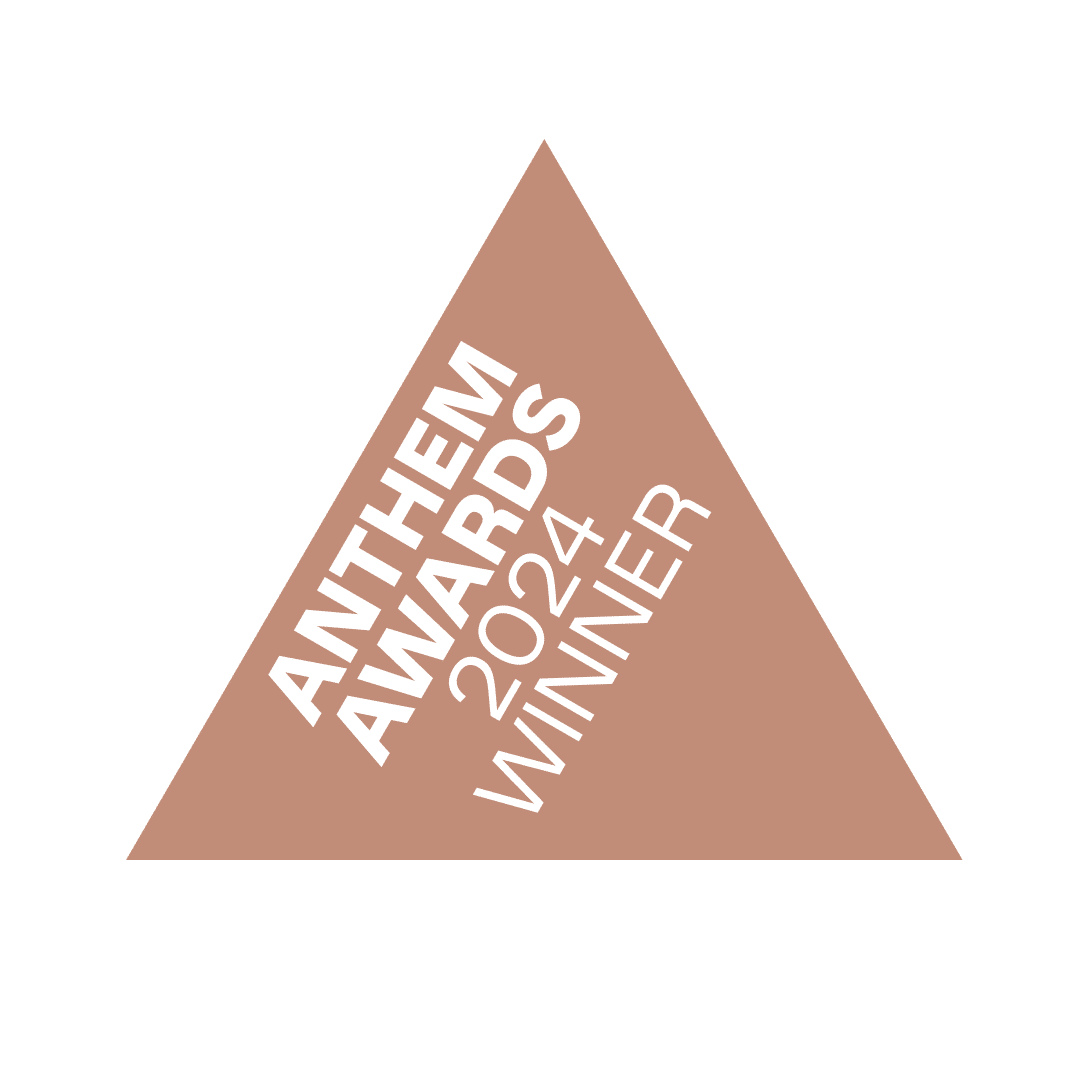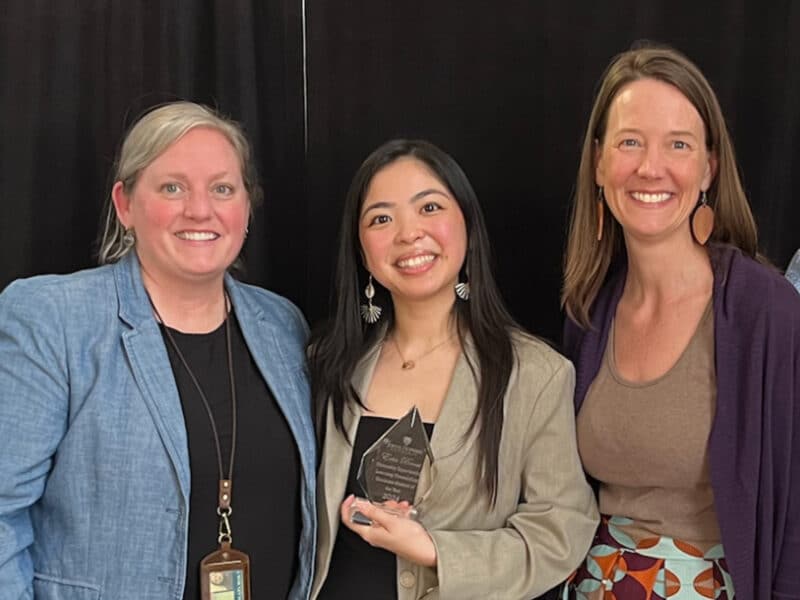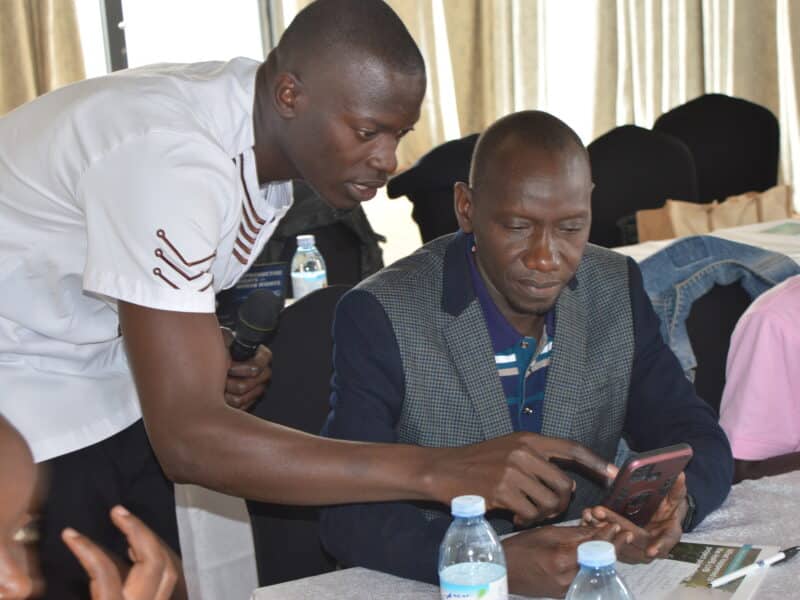Today, the Johns Hopkins Center for Communication Programs (CCP) has been recognized as a winner at this year’s Anthem Awards, which honor the purpose and mission-driven work of people, companies and organizations worldwide. The Anthem is the social impact arm of The Webby Awards, the top award for excellence on the internet.
The CCP-led Knowledge SUCCESS project won the first-ever Community Voice Award and bronze medal for community engagement/health strategy. This category honors “best-in-class or innovative media strategy by a non-profit, brand or organization that raises awareness, knowledge and engages a community around community engagement.”
The recognition comes for an innovative adaptation of the “sales funnel” — a traditional private sector strategy that maps a customer’s journey from awareness to action — into a new framework that promotes greater use of technical evidence and knowledge in family planning and reproductive health programming.
“People working in global health programs around the world are committed, passionate about what they do, and motivated to actively look for ways to improve their programs and services,” says CCP’s Anne Kott, who co-leads the recognized work for Knowledge SUCCESS. “Despite this passion, there are barriers to finding and applying new information in their programs. Our project team set out to discover why.”
Working together with community members, Knowledge SUCCESS identified three main challenges limiting the use of existing family planning and reproductive health evidence and technical guidance in programs:
- People are overwhelmed by all the information being shared.
Health workers want to be able to find things “at a glance” because there often isn’t time to closely read densely written resources. Large amounts of content on a page can be overwhelming, for this reason. This is especially true of people who have limited knowledge of English. For these workers, it is helpful to translate evidence into simpler and plain terms – or even better, into multiple languages that match local needs. - Resources must take culture and context into account.
When a new programmatic approach or research insight is shared, people want to know how it’s relevant to their specific culture and context. Resources are often complex technical statements which don’t lend themselves to actionable recommendations for use in programs, and it shouldn’t be left up to readers to determine how guidance can be implemented within their unique set of circumstances. - Alternative formats increase usefulness and use.
For many people, access to the internet is still a barrier. They’d prefer technical resources shared in visual formats that are easily viewed and shared on low-bandwidth platforms such as Twitter/X and WhatsApp.
People working in global health programs have competing priorities. “We’re balancing work with personal lives. Some of us are dealing with bad internet connections. Culture, location, gender, and identity may impact how many of us can access and act on information,” Kott says. “In other words, we’re people. And our humanity must be considered in the development and dissemination of new evidence and technical guidance.”
This award-winning strategy does exactly that, by conceptualizing knowledge and evidence as “products” that meet people’s needs, and designing and promoting these products in a way that ensures people will use them and find them useful enough to recommend to others.
So far, Knowledge SUCCESS has received positive feedback on the approach. Since the project began implementing this strategy in 2020, there have been more than 560,000 sessions on the Knowledge SUCCESS website (70 percent from users in low- and middle-income countries). In a survey, 90 percent of respondents report their information needs were met. Community members have said “the Knowledge SUCCESS activities have simply seduced us by their simplicity” and “I go [to your content] to unwind.”
The success reflects the work of many team members spanning four partner organizations — CCP, Amref Health Africa, Busara Center for Behavioral Economics, and FHI 360 – who brought the strategy to life, and the dedication of Knowledge SUCCESS community members who’ve embraced the call to “learn more, share more, do more” through knowledge management.
The Anthem Awards are judged by members of the International Academy of Digital Arts & Sciences, who independently evaluate entries based on a standard of excellence for each category, as determined by the Academy as well as industry leaders from non-profits, foundations and purpose-driven brands.
CCP was also chosen as the winner in a Community Voice process where anyone could vote for their favorite project from a list of finalists.
“The passion of our CCP colleagues and that of the knowledge management community – those who go above and beyond in their day-to-day work to improve the quality of their programs – was clear in the Community Voice acknowledgement,” says Tara Sullivan, who leads the Knowledge SUCCESS project. “We celebrate this dedication and engagement and share this celebration of purpose and mission-driven work.”
Every Anthem Award winner is asked to submit a one-sentence call to action. CCP’s call to action reminds global health professionals that knowledge sharing saves lives – and that efforts to share knowledge and information need to “make it count.”
“The Anthem Awards were born out of the desire to amplify and celebrate the voices that are creating sustainable change and to inspire others to take action,” said Patricia McLoughlin, general manager of the awards. “In a year where so much is at stake, it is incredibly important to recognize impact work and celebrate the progress happening globally.”
Others recognized by Anthem include the actors Kevin Bacon, Jesse Tyler Ferguson and Selma Blair, dancer Misty Copeland, and organizations from vote.org to AARP. An episode of the podcast Public Health on Call entitled “The Surge in Anti-Trans Bills and Attacks on LGBTQ+ Health,” hosted by CCP’s Stephanie Desmon, earned a silver award in the Awareness and Media (non-profit) category.
Fun fact: This isn’t the first time CCP was recognized by this organization. In 2017, CCP was a Webby Award nominee for a digital documentation of its work in West Africa during the Ebola crisis.




